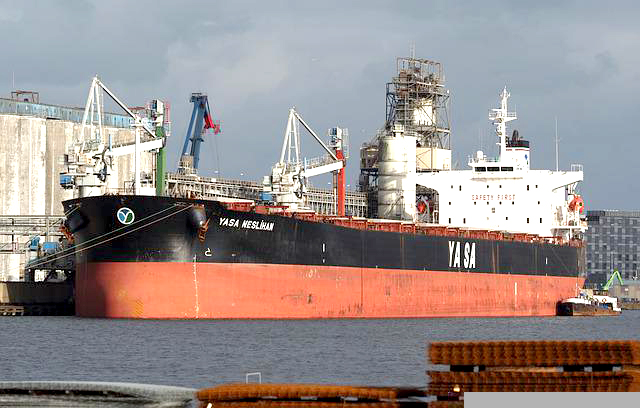World leaders are trying to save the 'Grain Deal'. They are faced with a central problem: the agreement, which has already been extended three times, is almost out of force, reports UkrAgroConsult, citing Bloomberg.
Ukraine's Black Sea ports, which were packed with ships in the fall of 2022, are now almost empty as the Joint Coordination Center is not operational. The few remaining ships are slowly being inspected. Russian officials continue to oppose extending the deal, while Kiev accuses Moscow of trying to sabotage it.
In 2022, an initiative for grain exports from the Black Sea ports was negotiated by the UN and Turkey to create a safe route for exports after Russia invaded Ukraine. Since then, nearly 33 million tons of grain have been exported to world markets under the "Grain Agreement," which has helped drive down food prices and bolster Ukraine's vital agricultural sector.
The agreement is scheduled to be extended on July 17, 2023. The EU, the USA and the UN are pushing for a continuation. The talks come amid a Ukrainian counter-offensive backed by Western governments.

Russia's Foreign Ministry has said there is no reason to extend the pact, citing 5 obstacles to its own food exports that it wants to remove. Analysts say ending the grain deal could skyrocket costs for Ukrainian farmers and cut what the UN calls a "lifeline to world food security."
Ukraine's grain production is already shrinking under the weight of war, and its exports could fall to their lowest level in 10 years. Events in Ukraine have prevented farmers from selling their crops in 2023.
The export deal has reduced the huge stockpiles Ukraine amassed after the Russian invasion, which halted virtually all maritime trade. ZusaTogether with the crop sold through the EU, Ukraine's grain exports in the 2022/23 season matched those of the 2021/22 season.
With the onset of the new harvest, this progress is dwindling: in early June, fewer than two ships per day were being handled, well below export capacity. Moscow has blocked one of the three open ports and no new ships have been admitted since June 26, although Ukraine's seaports administration is expelling nearly 30 ships registered by the other three parties.
“The agreement seems to be outdated. Once the new harvest arrives, access to seaports will be crucial for Ukraine's agriculture and the global balance sheet," according to Rabobank analysts.

The termination of the deal will force Ukraine to export more agricultural products through the Danube ports, as well as through rail and road transit across the EU border. These routes have proven to be an economic salvation: tonnage is now exceeding that transported via the Black Sea Corridor, and the government is keen to increase it further.
But even that has its price. Poland has banned grain imports from Ukraine due to an oversupply of local farmers. Other Eastern European governments have also imposed restrictions.
The biggest problem for Ukrainian exporters is the cost, which increases when the grain has to be transported over long distances and over different sized railway lines. "At current logistics costs and market price, all grains are loss-making," according to the Agrotrade Group.

Some see a silver lining if the corridor fails: Black Sea exports could accelerate if Ukraine decides to keep ports open without being hampered by ship controls mandated by the deal, according to Andrei Novoselov, an analyst at Barva Invest.
Kernel Holding SA, Ukraine's largest exporter of sunflower oil, said it is ready to continue shipping cargo if the defense and infrastructure ministries agree. In June, the Ukrainian government set up a $547 million insurance fund to compensate companies whose ships call at Black Sea ports if the export deal is cancelled.
It is unclear whether shipping companies would be willing to transit the war zone without the support of an international agreement. Two Turkish officials said on condition of anonymity that future Ukrainian supplies are unlikely when the deal expires.
Source: Ukragroconsult (Ukraine)

